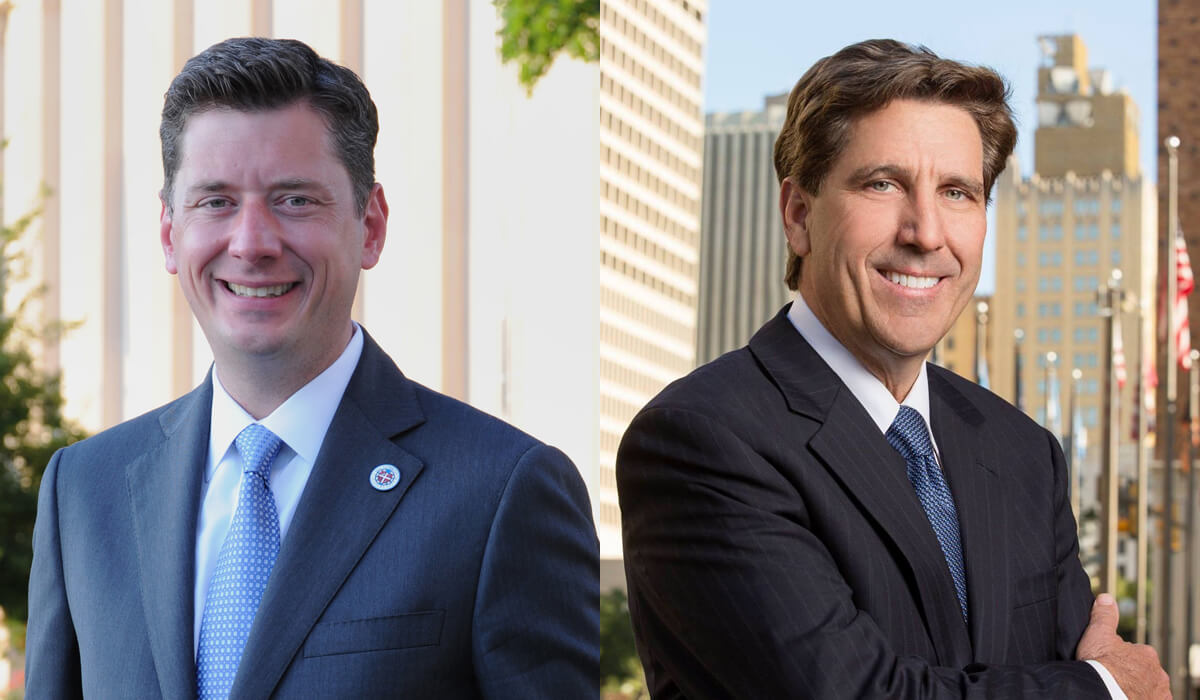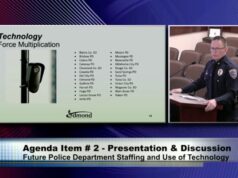
Originally written by Gov. Lee Cruce in 1911, Oklahoma City’s charter has been amended more than a dozen times. The last time the charter underwent a comprehensive review was 2008, but voters also made a minor change in 2019 to allow teachers and state employees to serve on the City Council.
Along with a ballot for president and a host of other races, Oklahoma City voters are being asked to approve a series of charter changes to make the city’s founding document more compliant with current law.
The OKC charter serves as the governing document of the city and contains within it ordinances and laws. On Nov. 3, voters will have the option to vote for or against nine propositions.
The charter changers are largely technical. For example, in Proposition 1, the name of the February primary election would become the general election, and April’s general election would become the runoff election.
In Proposition 5, the proposed amendment would allow the mayor or a councilmember to provide information to the city manager about a city employee’s job performance. The information would be required to be based on direct personal knowledge or a signed, written statement from a resident.
Proposition 2 would modify language about time requirements for which someone would need to live and be registered to vote in OKC city limits before running for mayor or a council seat. The change would bring the OKC charter language into compliance with federal law, although the city has operated under applicable state law for years.
No matter the OKC charter change, voters decide

Ward 8 Councilman Mark Stonecipher led a committee that examined the OKC charter and produced recommendations to the City Council, which then added them to the Nov. 3 election slate.
“These amendments would more clearly label our municipal elections, align the requirements to run for office with federal law and make sections of the charter easier to read,” Stonecipher wrote in an editorial published by The Oklahoman. “These are all changes the committee identified as much needed to bring our charter into the modern era and fix some issues that have been lingering for years.”
Oklahoma City Mayor David Holt said the city’s charter is re-visited every decade or so. But even though the citizen committee recommended the changes, the council can’t act unilaterally to change the OKC charter.
“The charter is, as you know, our city’s governing document, and therefore can only be amended by a vote of the people,” Holt said. “It doesn’t matter how mundane the change, it still has to go to a vote of the people.”
Holt said while the changes are necessary, they won’t change the way the city operates.
“They all seem necessary, but none of them fundamentally alters any aspect of Oklahoma City government,” he said. “In some cases, the charter is already out of compliance with state law or court cases, and those sections are going to be inoperative whether the voters approve the updates or not. In those instances, these updates just make for a cleaner document.”
The city created a page on its website to explain the changes, and a full explanation is also included on each ballot. Only voters in the OKC city limits will be able to vote on the changes.
Holt said the changes might seem like a bigger deal than they actually are.
“Because the voters are being asked, it can leave the impression that the questions are of a greater magnitude than the questions the council is normally entrusted to decide on the people’s behalf,” Holt said. “But in reality the changes being proposed are all of a fairly technical nature.”
(Correction: Shortly after its publication, this article was updated at 2:50 p.m. Tuesday, Oct. 27, to clarify the timeline of prior OKC charter updates.)





















